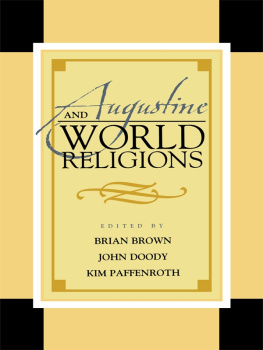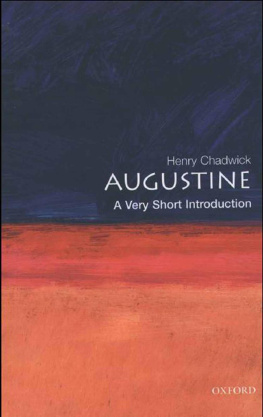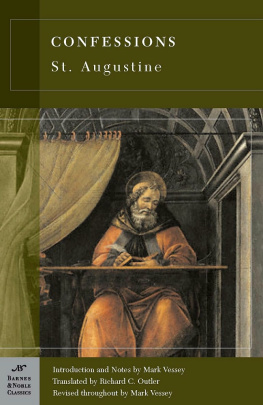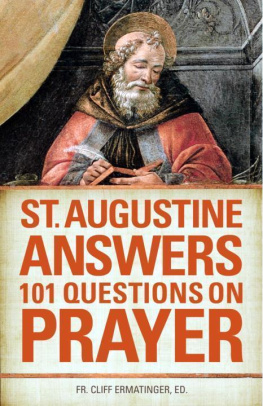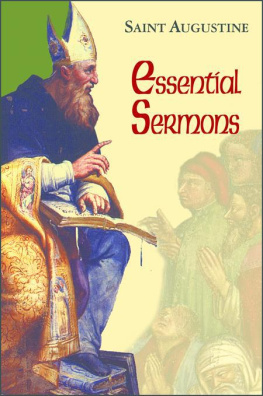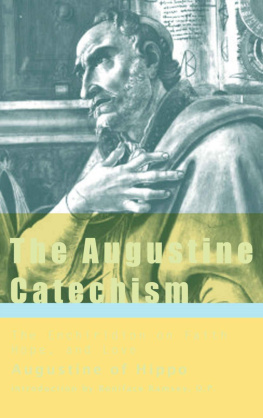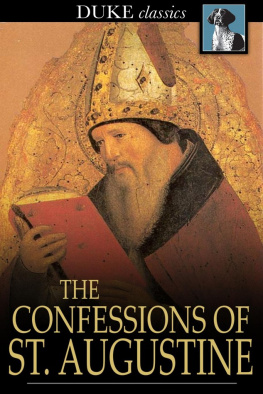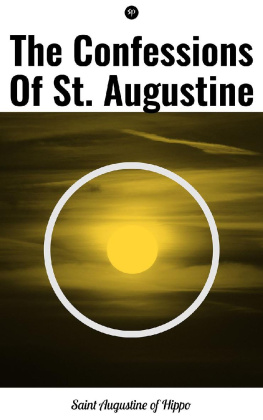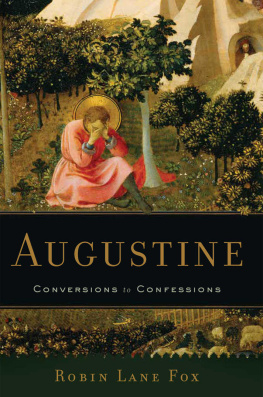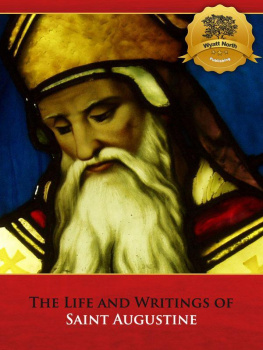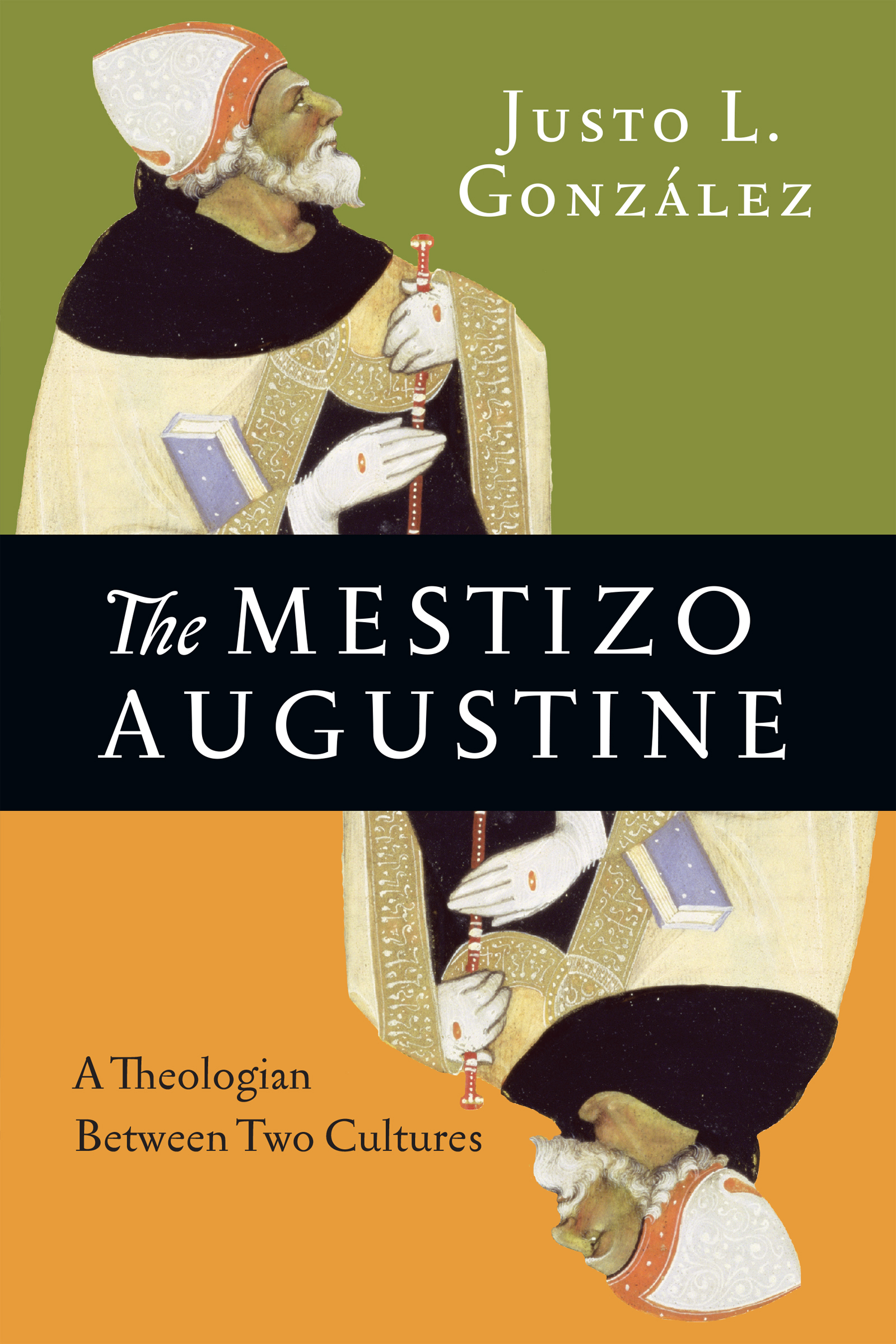whose mestizaje has enriched mine.
Preface
I have been personally interested in Augustine for a long time. I was barely six or seven years old when the Bible societies launched a campaign under the theme of the famous words that Augustine heard in the garden in Milan: tolle, legetake and read. Shortly thereafter I first heard the famous words that we have been created for God, and our hearts will be restless until they rest in God. Later, when as a zealous Protestant in Latin America I sought weapons against Roman Catholicism, I was told that in the writings of Augustine I would find many weapons. At about the same time the reading of Augustines Confessions was for me both an inspiration and a challenge. Quite a few years later, when I was a student at Yale University, I was able to do some further and prolonged study of St. Augustine. And even more recently, in both personal and written dialogue with friends and companions such as Orlando Costas, Virgilio Elizondo, Ada Maria Isasi-Daz, Daisy Machado and several others, I began to suspect that Augustines restlessness was not due only to his distance from God, as he tells us in his Confessions, but also to the inner struggles of a person in whom two cultures, two legacies, two world visions clashed and mingledin short, of a mestizo. It was this insight that led to the present book, which seeks to be a fairly simple introduction to Augustines thought, but reading him from a perspective reflecting the context of a mestizaje similar to that which is experienced today in the United States by people of Spanish speech and Latino culture. This context is so unique and significant that I am told that soon the Royal Academy of the Spanish Language will include in its official dictionary the word hispanounidense (a strange compound word meaning something like Hispanic United [States]ian), since hispanoamericano is anyone born in the former colonies of Spain in America. The new term proposed to the academy reflects the experience of mestizaje that is so significant for us.
In the pages that follow I have not paid much attention to matters that are currently debated among specialists, and have also resisted the inclination to constantly quote secondary sources or scholarly works. Rather, I have tried to employ as much as possible the words of Augustine himself. Those other works and sources that I have not mentioned can easily be found on the Internet.
Finally, a word of gratitude not only to the friends and colleagues I have mentioned above but also to the two main companions that I have had in this task: Augustine himself through his works, and my wife, Catherine, professor emerita of church history at Columbia Theological Seminary, who has not only accompanied me in the task but also helped me understand Augustine himself. Thus, although sixteen centuries stand between them, both Augustine and Catherine speak in the pages that follow.
Abbreviation
| NCP | The Works of Saint Augustine: A Translation for the 21st Century. Series edited by Boniface Ramsey. 50 vols. Hyde Park, NY: New City Press, 1990. |
Introduction
A Unique Theologian
Save Paul and the other New Testament writers, no other Christian writer or thinker has left such a profound footprint on the life and thought of the church as has St. Augustine. Certainly, this footprint is much more visible in Western Christianitythat is, Roman Catholicism and Protestantismthan in the Eastern churches, which are heirs of what in Augustines time was the mostly Greek-speaking section of the Roman Empire. In the West, there is no theologian who can compare with Augustine. When the Germanic peoples invaded and eventually destroyed what had been the Roman Empire, Augustine and his writings served as a bridge between the former Christian tradition and the new context and cultures. Therefore it was through the eyes of Augustine that medieval Latin-speaking Christianity read Scripture and understood the Christian faith. When, a thousand years later, that Western Christianity was divided as a result of the Protestant Reformation, both sides in that great debate claimed the authority of Augustine in support of their views. To this day the vast majority of Christians, when they read, for instance, the epistles of Paul, do it, even unwittingly, through the eyes of Augustine.
Reading the New Testament or understanding the Christian faith through the eyes of Augustine is not necessarily wrong. But it is dangerous to do so without being aware of it, which makes us subject to or at least unaware followers of someone we do not know. Augustine can be very helpful, and indeed he is. But not to know him leads not only to a lack of understanding of our faith, but even to the inability to distinguish between the New Testament and what Augustine tells us the New Testament says. And the opposite is also true: a study of the life and thought of people in the past such as Augustine may well lead us to rediscover in our faith elements that the passing of centuries has obscured.
This is most important because, as we shall see, while Augustine made many valuable and important contributions to Christian theology, he also left us as a legacy many other elements that must be corrected.


